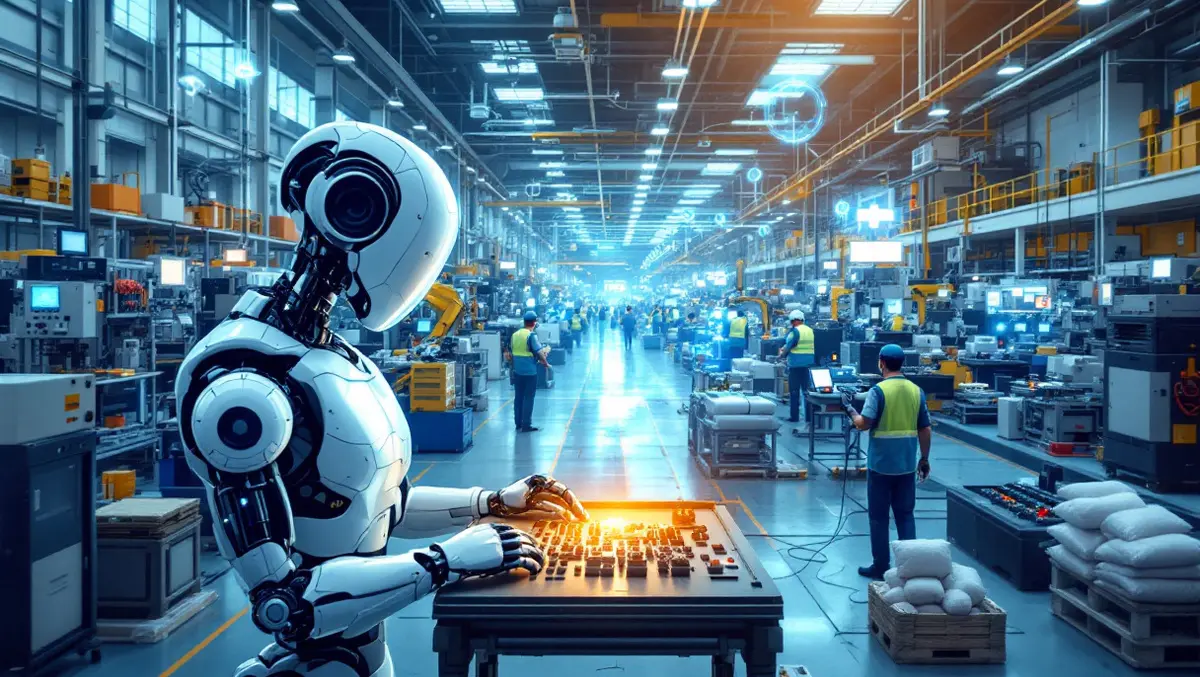
Report highlights AI's rise & challenges in manufacturing
TeamViewer has released The AI Opportunity in Manufacturing Report, highlighting artificial intelligence's transformative potential within the manufacturing sector.
The report indicates a substantial increase in AI usage among manufacturing leaders, with 78% using AI weekly, up from 46% in the previous year. This increased adoption is attributed to global challenges such as labour shortages and supply chain disruptions. Despite growing confidence, only 28% of manufacturing leaders consider themselves to be AI experts, underscoring the need for further education and skills development.
AI is primarily being utilised for customer support automation, data analysis, and supply chain optimisation, with 28%, 23%, and 19% of manufacturers respectively indicating these areas as primary uses. Mei Dent, TeamViewer's Chief Product and Technology Officer, commented: "Young workers, with their digital-native mindset, are leading AI adoption and helping to integrate the technology into manufacturing's legacy systems."
The report also suggests that AI is driving notable improvements for businesses and employees. A significant 77% of decision-makers view AI as critical for enhancing efficiency, automating routine tasks, and allowing employees to engage more in strategic work. Additionally, 78% have embraced AI for high-level decision-making. More broadly, AI is reportedly improving product quality and reducing defects in precision-driven manufacturing.
The implications of AI for the workforce are also positive, with 74% of respondents stating that AI enhances data analysis and decision-making capabilities, 72% attributing the technology to new skill acquisition, and 71% seeing it as essential for career progression. Financially, 71% foresee AI playing a role in boosting revenue within the next year, with a projected growth of 188%.
Despite its potential benefits, AI adoption faces challenges including security risks, as 76% cite AI-related data risks. Other barriers include a lack of AI education, high implementation costs, and limited financial support for large-scale AI initiatives. Nonetheless, optimism prevails with 81% of manufacturers expecting increased investment in AI over the next year. Addressing these challenges through targeted education and strategic financial planning is considered vital for broader adoption.
The report stresses the importance of AI investment for realising its potential in manufacturing. Education is highlighted as a priority, with 96% of respondents recognising the need for further training to mitigate associated risks. Additionally, there is significant support (68%) for appointing Chief AI Officers to oversee AI strategy and responsible implementation.
Mei Dent concluded: "AI has already proven its ability to transform businesses, but we've only scratched the surface of its potential. By focusing on collaboration, education, and responsible adoption, manufacturers can harness AI to achieve remarkable results while fostering innovation."


